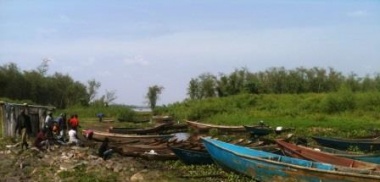
The project seeks to improve understanding of the role of institutions in developing adaptive capacity to the near-term effects of climate change in the Lake Victoria region of East Africa. Key adaptive capacity issues in the Lake Victoria region include disruptions to agricultural productivity, altered flood regimes, threats to the viability of fisheries, and shifts in plant and animal habitat suitability. Within the past few decades, numerous collaborative institutions have emerged to help address these adaptive capacity issues. Our study of how these institutions contribute to policy making and policy implementation draws upon recent applications of game theory to test predictions about organizational behavior within institutional networks, as well as resilience theory to test predictions about the role of institutional arrangements in creating and maintaining adaptive capacity.
Objectives: We aim to improve understanding of the role of collaborative institutions in promoting adaptive capacity of complex social-ecological systems. Using data gathered from a survey of stakeholder organizations, the proposed project will investigate three related research questions:
- Why do organizations participate in collaborative institutions?
- What factors lead to conflict within and among collaborative institutions?
- How does science inform policy?
Study design: Data will be gathered through a survey of environmental policy stakeholder groups operating in the Lake Victoria region, including national ministries, local governmental organizations, academic/research organizations and civil society organizations. The survey instrument will focus on attributes of organizations, attributes of institutions, and patterns of collaboration among organizations in each institution. These questions are designed to gather information about:
- The goals and capabilities of organizations (including resources, such as data)
- The goals of collaborative policy institutions, their scopes of activities, and the opportunities they provide to participating organizations
- Which organizations participate in which institutions, the frequency with which they participate, and the nature of participation (e.g., sharing information, conducting training, receiving funding to carry out activities, etc.)
The survey will also ask respondents to evaluate institutions through a range of questions that gather information about:
- The extent to which conflict impedes institutions’ efforts
- Institutions’ effectiveness in facilitating the communication of scientific information to policy-makers
Fieldwork will be conducted between January 2014 and June 2014. We will administer the survey in Kenya, Tanzania, and Uganda. Project partners:
- University of California at Davis (USA)
- Makerere University (Uganda)
- Dedan Kimathi University of Technology (Kenya)
- University of Dar Es Salaam (Tanzania)

Disqus Comments